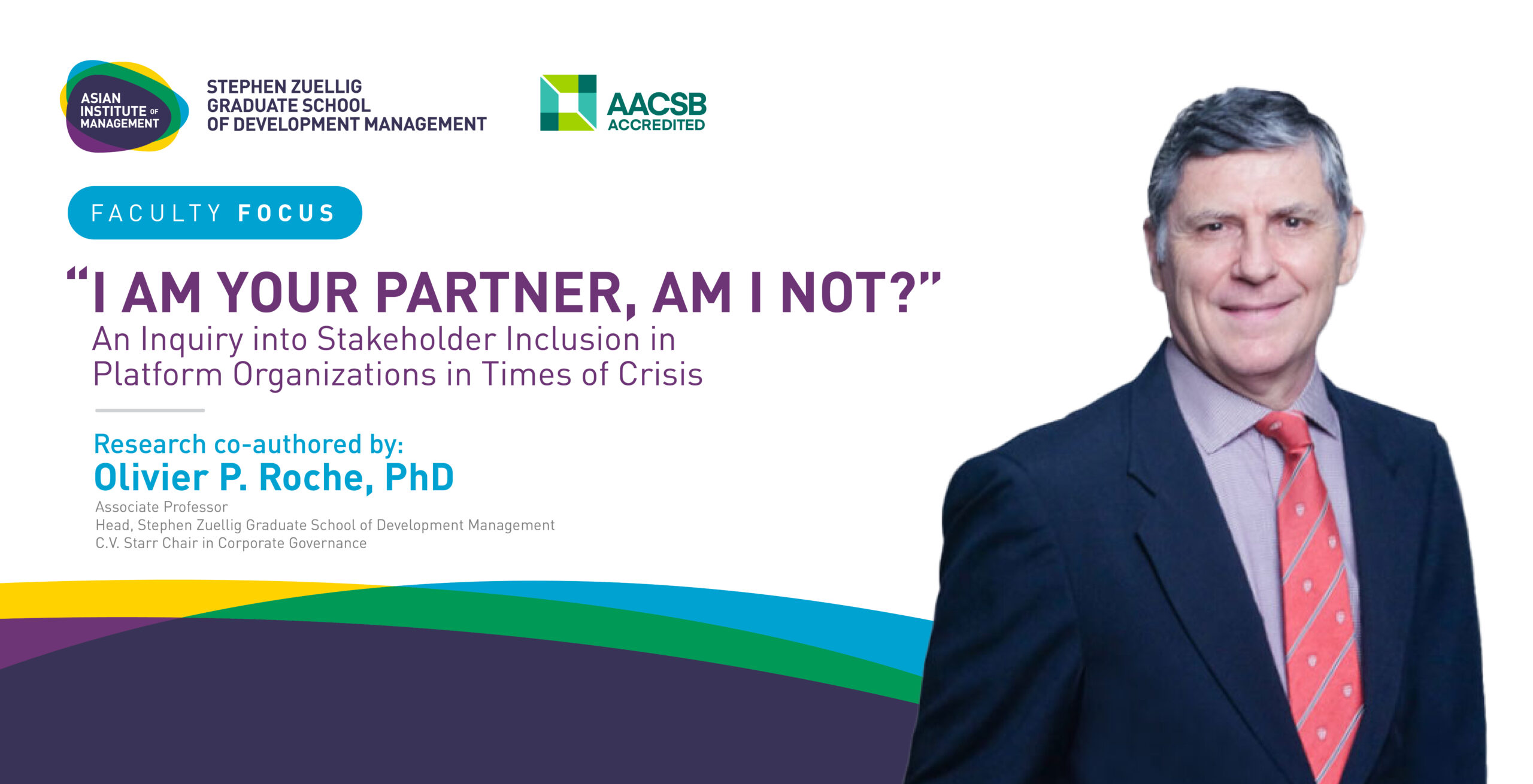“How is stakeholder inclusion practiced in platform organizations in times of crisis? And what outcomes does it produce?”
This is the heart of a study co-authored by the Asian Institute of Management’s Stephen Zuellig Graduate School of Development Management (SZSDM) Head Olivier P. Roche, PhD.
Published in the Journal of Business Research (Volume 160, May 2023), Roche, along with co-authors Dr. Nicole Siebold (Aarhus University) and Sebastian Oelrich (Technische Universität Dresden in Germany), examines through the lens of stakeholder theory the practices employed by Airbnb when faced with the COVID-19 pandemic. The platform introduced new practices to mitigate the grave consequences of the crisis; however, its leaders failed to give voice to key stakeholders, which drew criticism and eventually, distrust and selective disengagement.
Roche et al drew on psychology’s concept of inattentional blindness to explain Airbnb’s failure to notice the dissonance involving their articulation of stakeholder meaning and understanding.
Stakeholder trust plays a key role in the success of a platform organization such as Airbnb. However, a world-shifting crisis such as the pandemic can impact the interactions between stakeholders and platform leaders. The advantages of engaging with stakeholders cannot be denied, but it also comes with complexities that can lead to positive and negative outcomes.
There is great promise in stakeholder inclusion for businesses, but a full understanding of this concept as practiced by platform organizations, especially in times of crisis remains limited. The analysis of Roche et al of Airbnb’s introduction of methods to alleviate the effects of the pandemic on their providers and consumers while neglecting to anticipate the disjunct with the expectations of their stakeholders provides fundamental insight into the crucial obligation of platform organizations to consider partner comprehension and interpretation. “I Am Your Partner, Am I Not? An Inquiry into Stakeholder Inclusion in Platform Organizations in Times of Crisis” is a significant contribution in examining the phenomenon of “looking without seeing” and offers suggestions to platform leaders to mitigate this risk.
Access the study at https://doi.org/10.1016/j.jbusres.2023.113776






